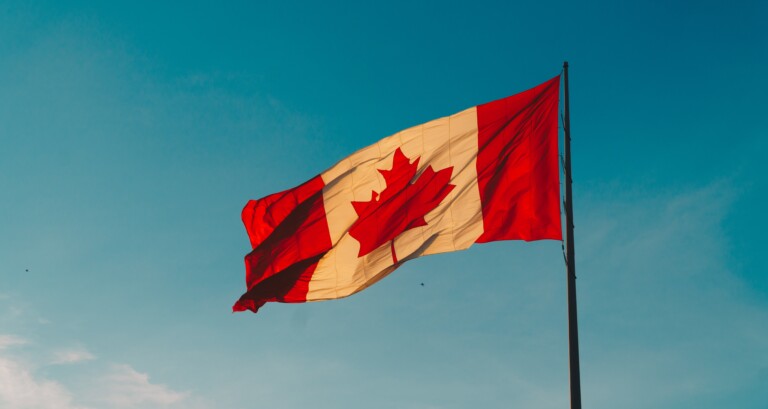I am a small business owner that has been forced to shut down my leased location due to COVID 19. What are my options in addressing the issue of rent with my landlord?
You’ll want to first look into whether you might qualify for support under any government programs such as CERB or CECRA. Information for these and other initiatives can be found on the Federal Government’s website. Second, examine your lease closely. The agreement will most likely require you to pay rent without abatement or setoff, but that wouldn’t prevent you from reaching out to your landlord to discuss an alternate arrangement. Many landlords are currently working with tenants in terms of forgiving (abatement) or postponing (deferral) the payment of rent. Both you and your landlord will want to record any agreement you reach in writing and it’s recommended that you have a lawyer prepare that document for you. All parties to the lease (landlord, tenant, guarantors, co-covenantors, and indemnifiers) should sign the agreement. Third, consider having a lawyer review your lease and your circumstances to see if there are any other options available to you. Some leases have a force majeure clause which may be of assistance in postponing the payment of rent. Likewise, your particular situation may permit you to argue that the overall contract has been frustrated bringing the agreement to an end. Arguments based on force majeure clauses and the doctrine of frustration are complex, however, and not usually available. Last, check your business insurance to see if your policy coverage might be of any benefit. It is a good idea to talk with a lawyer when considering these and other options and, of course, to explore with your landlord other means by which you could both weather the COVID storm.
If I am a non-resident of Canada for Canadian tax purposes, but I am forced to remain here (due to COVID-19 travel restrictions) for more than 183 days, am I subject to Canadian income tax?
As a general matter, an individual who is present in Canada for more than 183 days in a year is deemed to be resident in Canada for the year, and thus subject to Canadian income tax for the year. However, Canadian income tax treaties with other countries typically contain a so-called “tie-breaker rule” which may deem you to be a resident of the other treaty country where your ties to that country are greater than your ties to Canada, and thus override the 183-day rule. That said, the application of the treaty rules is quite fact-dependent, and you should consult your tax advisor to determine their application in your particular case.
By an initial release on May 22, since extended on June 29, 2020, the Canada Revenue Agency (CRA) has issued a statement of administrative position in relation to this issue. Under the CRA administrative position, if a non-resident of Canada is forced to remain in this country due to “travel restrictions” flowing from COVID-19, this time present in Canada will be disregarded in determining whether the individual is resident in Canada under either the common law or the 183-day rule described above. This administrative position continues to apply retroactively from March 16, and now extends to August 31, 2020; at that time, the position may be further extended or rescinded. This position applies irrespective of whether the provisions of a tax treaty might otherwise apply; even if this administrative position is rescinded, the treaty protection referred to above would still be potentially available.
Can a public company apply for the new wage subsidy program that the Canadian federal government is offering?
Yes, a public company is eligible for the 75% wage subsidy program (provided other eligibility requirements are met). All for profit and non profit businesses are eligible, with the only exception being public sector enterprises (e.g. schools, hospitals).
Does my company have to agree to accept reduced or delayed payments from customers because the COVID-19 pandemic is so serious?
From a business relationship perspective, it may be sensible to negotiate modified payment terms but your strict legal rights will be determined by the specific contractual arrangements in place between the parties. Absent specific language, most commercial contracts will entitle you to insist on full payment and on time regardless of your customer’s circumstances arising from the pandemic. Any agreed alteration to your contractual arrangements should be clearly set out in writing and specify whether payments are being forgiven or only deferred – and for how long – so there is no inadvertent waiver of a right to claim full payment at some future time.
With the effective closure of the BC courts for all but the most urgent matters, how can I resolve my business dispute without waiting for the courts to reopen?
Mediation and arbitration are effective private procedures that can be used to resolve disputes in a timely and cost-effective way and in a manner that complies with all appropriate health and safety guidance. Mediation is essentially a settlement negotiation facilitated by an independent mediator who attempts to bring the parties to an acceptable compromise. If no agreement is reached, all of the negotiations and offers made are privileged and cannot be used by either party in the litigation going forward. Conversely, an arbitration is a private, streamlined trial of sorts which is held before a neutral arbitrator (usually a retired judge or senior lawyer agreed to by the parties). Most of the evidence is tendered in written form by way of affidavits although certain key witnesses may be cross-examined if necessary. The decision is binding on the parties like a regular court judgment and is subject to appeal to the BC courts only on very limited grounds.
I have a claim that I have been sitting on for some time and my limitation date to file a claim or start a lawsuit is coming up. Is everything on hold right now?
In BC, most claims are subject to a two year limitation period. However, there can be complex questions involving just exactly the clock begins to run, so each situation will be different. On March 27, 2020, the Minister of Public Safety and Solicitor General issued an order (the “Order”) suspending every mandatory limitation period and any other mandatory time period that is established in an enactment or law of BC within which a civil or family action, proceeding, claim or appeal must be filed in the Provincial Court, Supreme Court or Court of Appeal. This suspension of limitation periods does not apply in cases that are within the jurisdiction of administrative tribunals such as the Civil Resolution Tribunal (“CRT”) or the Human Rights Tribunal. In these cases, the decision-maker will have specific authority to suspend or extend the limitation period in each particular case. In other words, if you file your claim late due to a reason related to COVID-19, you would need to convince the tribunal to accept a late filing. The Order applies as of March 26, 2020 and ends when the declaration of a state of emergency made on March 18, 2020 expires or is cancelled.
I don’t see anything on your resource site regarding the issues surrounding commercial lease payments coming on April 1st, for businesses that have been ordered closed. There has also been very little on this from the various levels of govt. I’ve only seen some comments about the 50% tax reduction which may or not flow through to tenants, and similarly, mortgage deferrals and whether landlords will pass those interest savings on the tenants.
Every commercial lease is unique and it’s best to review your particular situation with a lawyer. That said, I can make the following general comments:
- You’re correct that tenants will likely be required to pay rent under their commercial leases notwithstanding the current pandemic. Most leases provide that rent must be paid without abatement or setoff.
- Notwithstanding the above comment, it’s worth noting that lease terms can vary widely. It’s important to review the particular contract. For example, a lease may have a force majeure clause which might address the highly unusual situation we now face. The wording of these types of clauses, however, wouldn’t usually assist a tenant facing COVID 19 business interruptions.
- There is also the possibility of an argument for some form of relief under a legal concept known as the doctrine of frustration as contemplated by legislation such as B.C.’s Frustrated Contract Act. Again however, previous Court decisions do not appear to support an argument for avoiding the contractual obligations of a lease due only to the sort of issues raised by the pandemic.
Despite what appears to be an ongoing requirement for landlords and tenants to continue to perform their lease obligations, I am hearing from both sides that many are engaged in discussions to adapt to the problems they are facing. As you’d guess, most landlords would like to see their premises rented and most tenants would prefer to “weather the storm” and be in a position to resume business down the road. To that end, parties are discussing the possible deferment of rent for the month of April with an agreement to revisit matters again prior to May. It’s worth remembering that landlords continue to have to meet their ongoing operating costs and so I’ve also heard of parties negotiating towards a partial payment of rent for April with, again, a promise to revisit matters prior to the following month. Based on my experience, it would likely be much better for an agreement to be reached, even if a temporary one, than to see a lease go into default. Any such agreement should, of course, be reduced to writing. A lawyer can help in preparing that document.
Finally, I’d add that the our governments are looking at relief packages on various fronts. The prospect of relief for small businesses might also argue for a temporary deferment agreement on rent. A deferral would provide some time to see if other solutions arise.
Are construction workers entitled to an ROE if they only take off two or three days while they wait for COVID test results? Are companies required to issue these? Does this also apply to regular office employees?
A record of employment (“ROE”) must be filed with Service Canada anytime an employee experiences an interruption of earnings or when Service Canada requests one. The same rule applies for hourly and salaried employees.
An “interruption of earnings” occurs when an employee has had or is anticipated to have seven consecutive calendar days with no work and no insurable earnings from the employer. This is known as the “7 Day Rule”. The 7 Day Rule does not apply to real estate agents, employees who have non-standard work schedules or commission salespeople.
An “Interruption of earnings” has also occurred where an employee’s salary falls below 60% of regular weekly earnings because of illness, injury, quarantine, pregnancy, caring for a newborn child or adopted child or the care of a critically ill family member.
You would not have to issue an ROE for these employees who are only off for two or three days waiting for Covid test results.
The opinions expressed in this response are not to be considered legal advice.
Feel free to sign up for our newsletter here.


